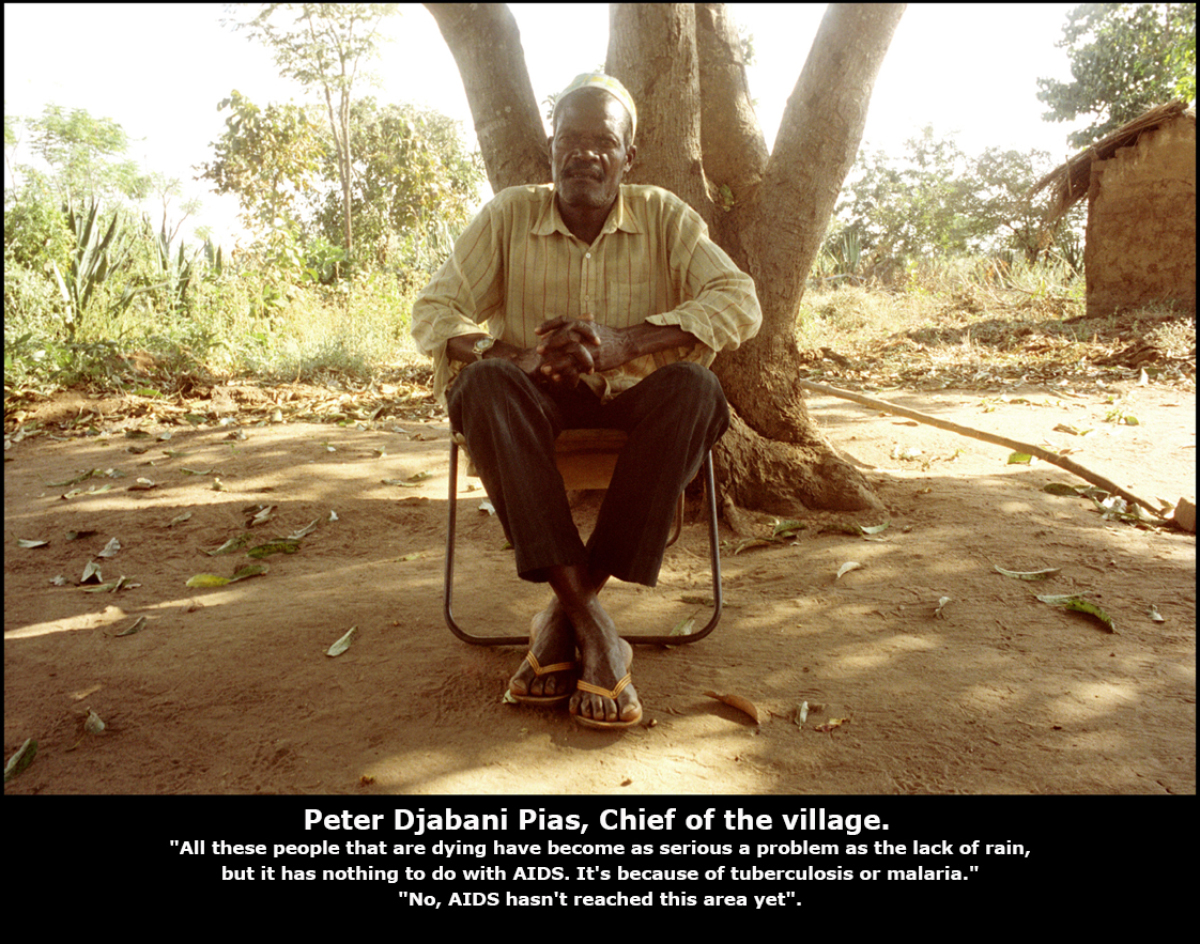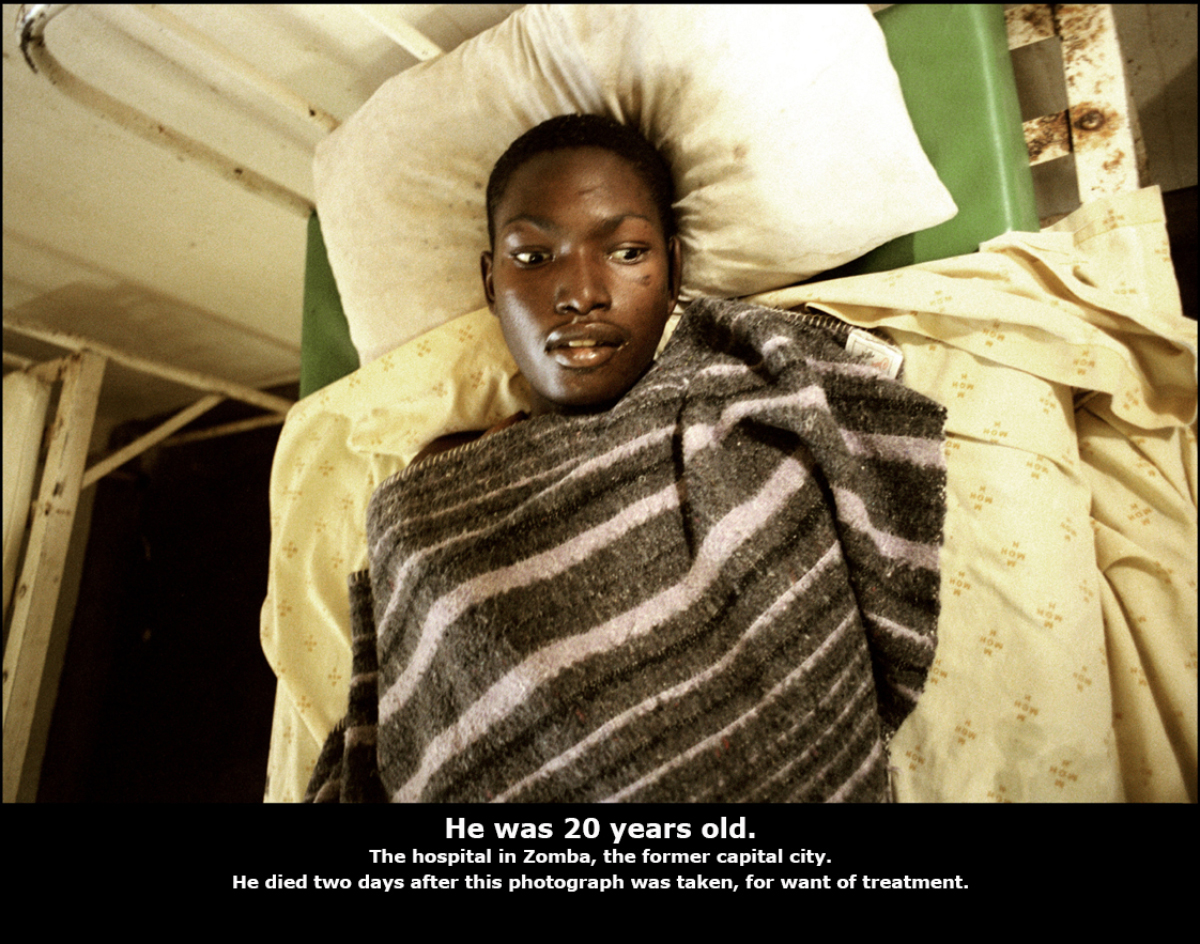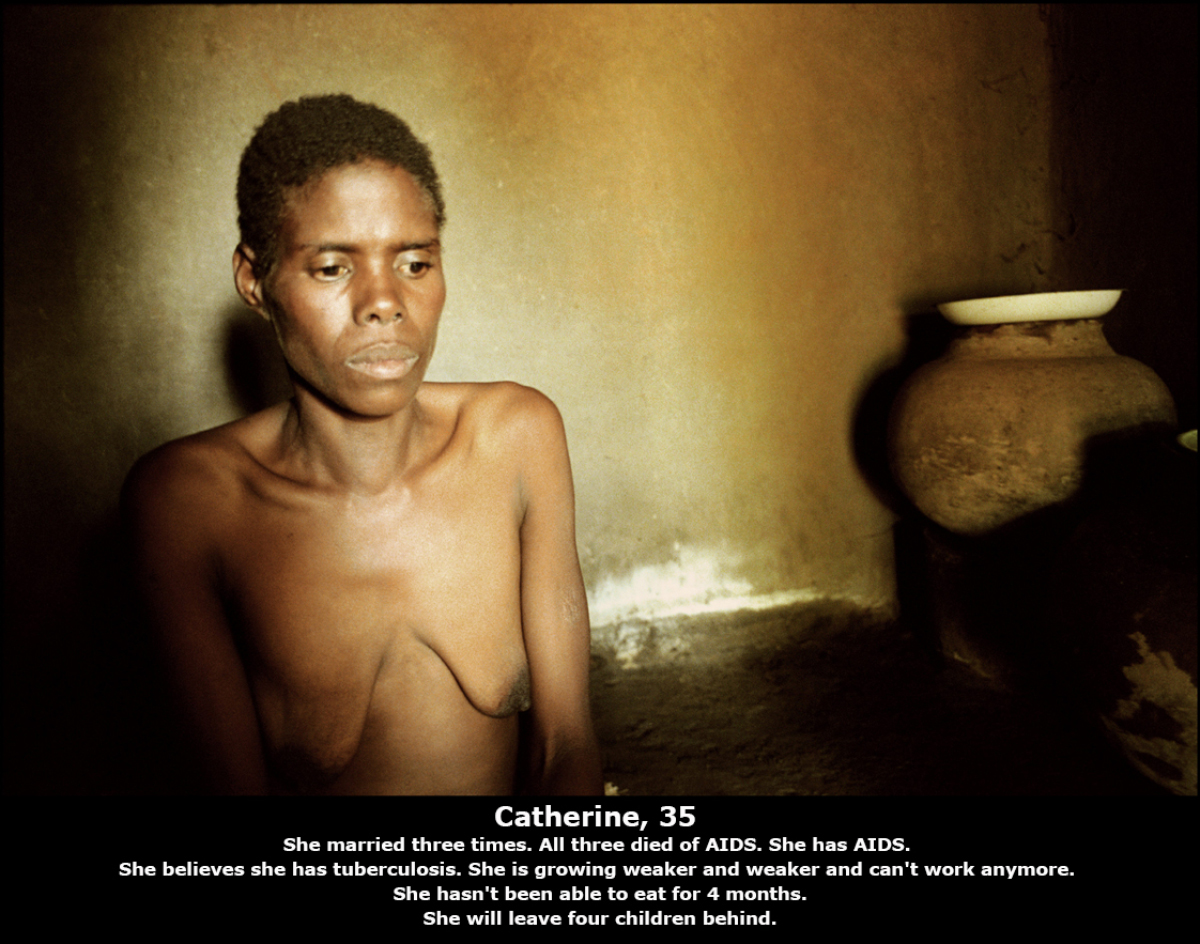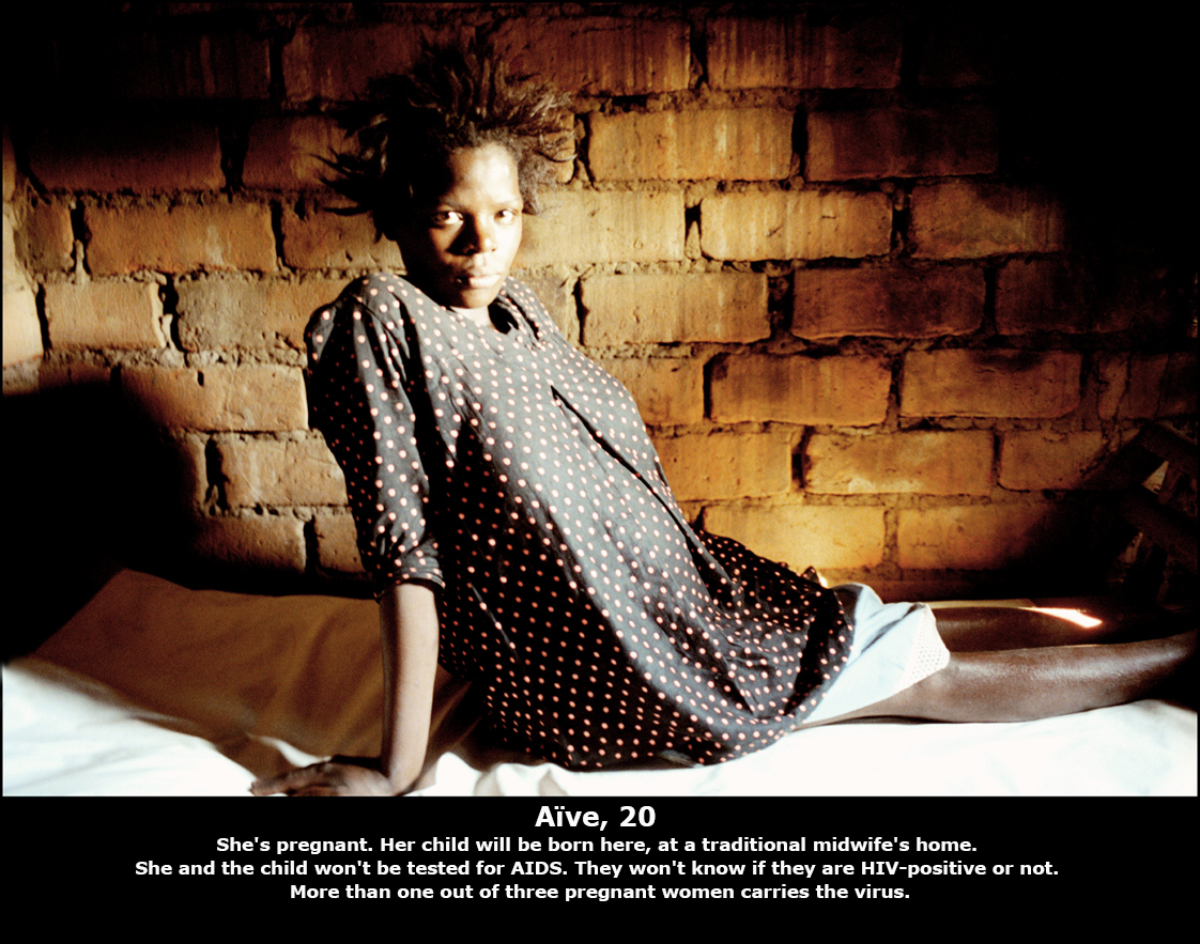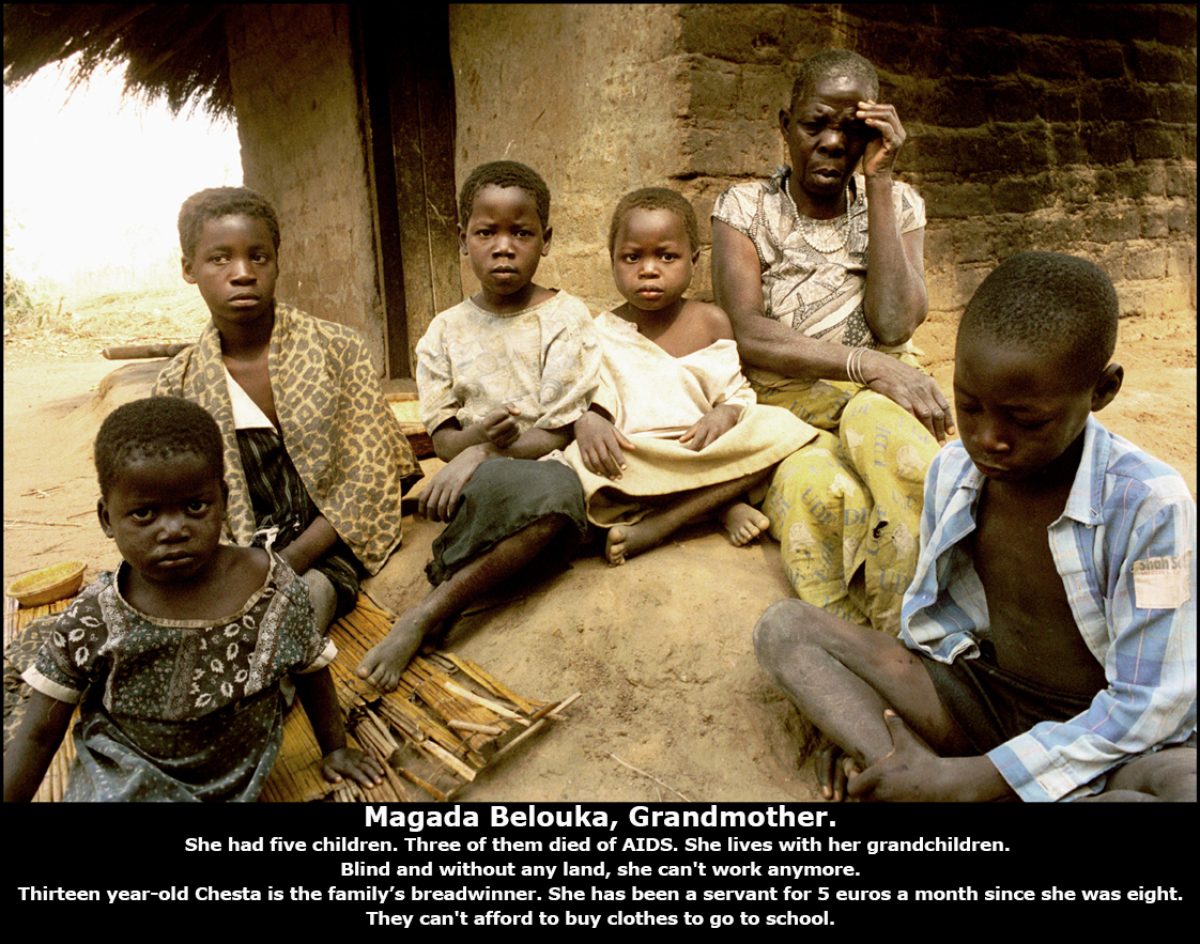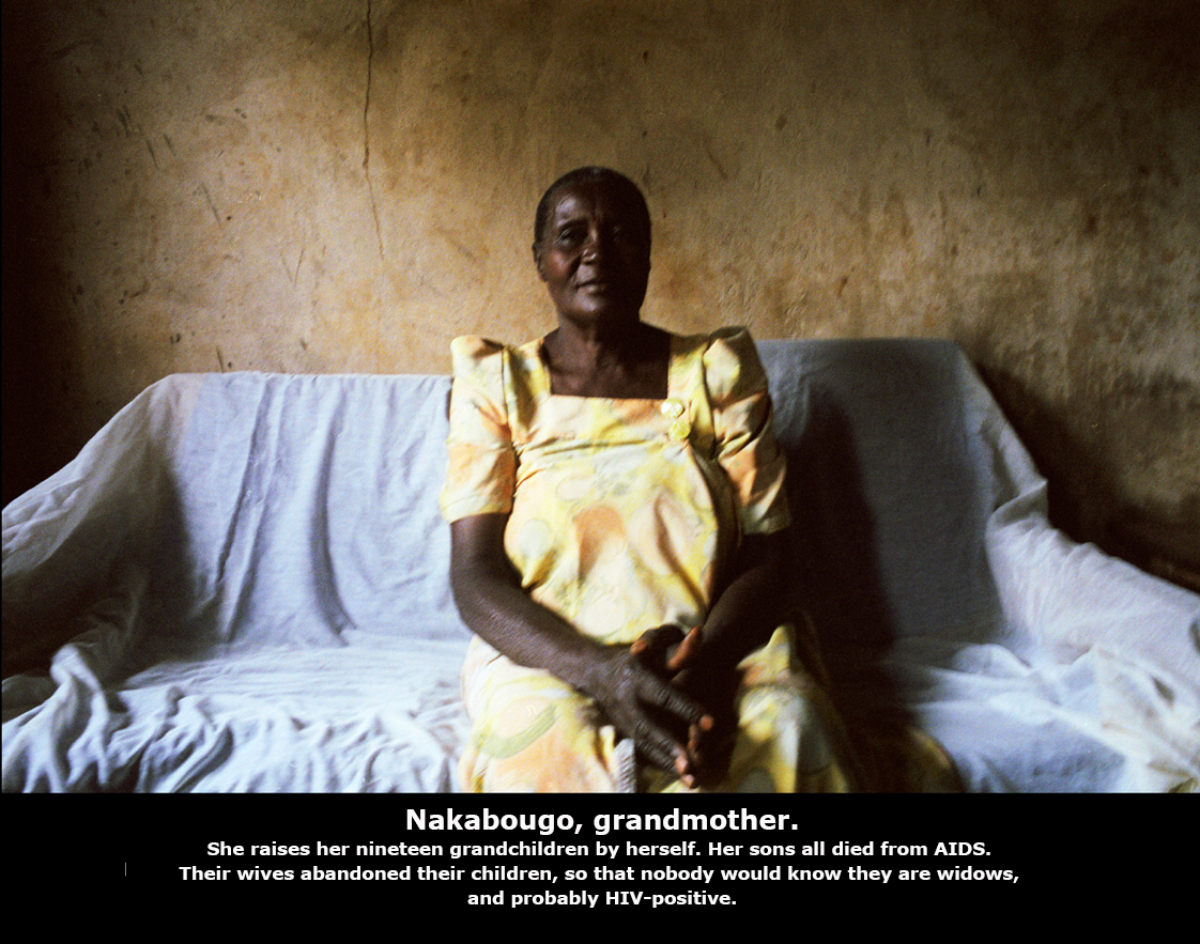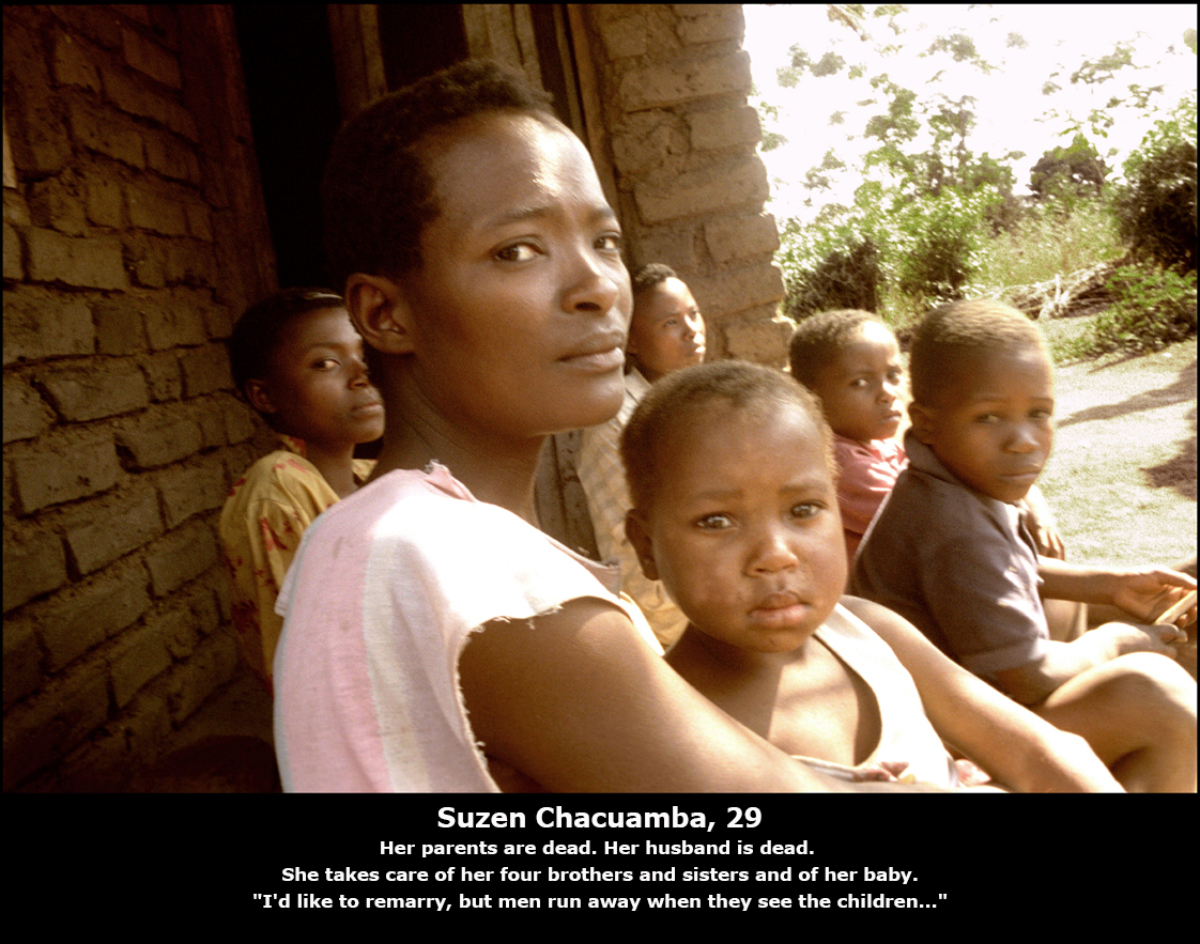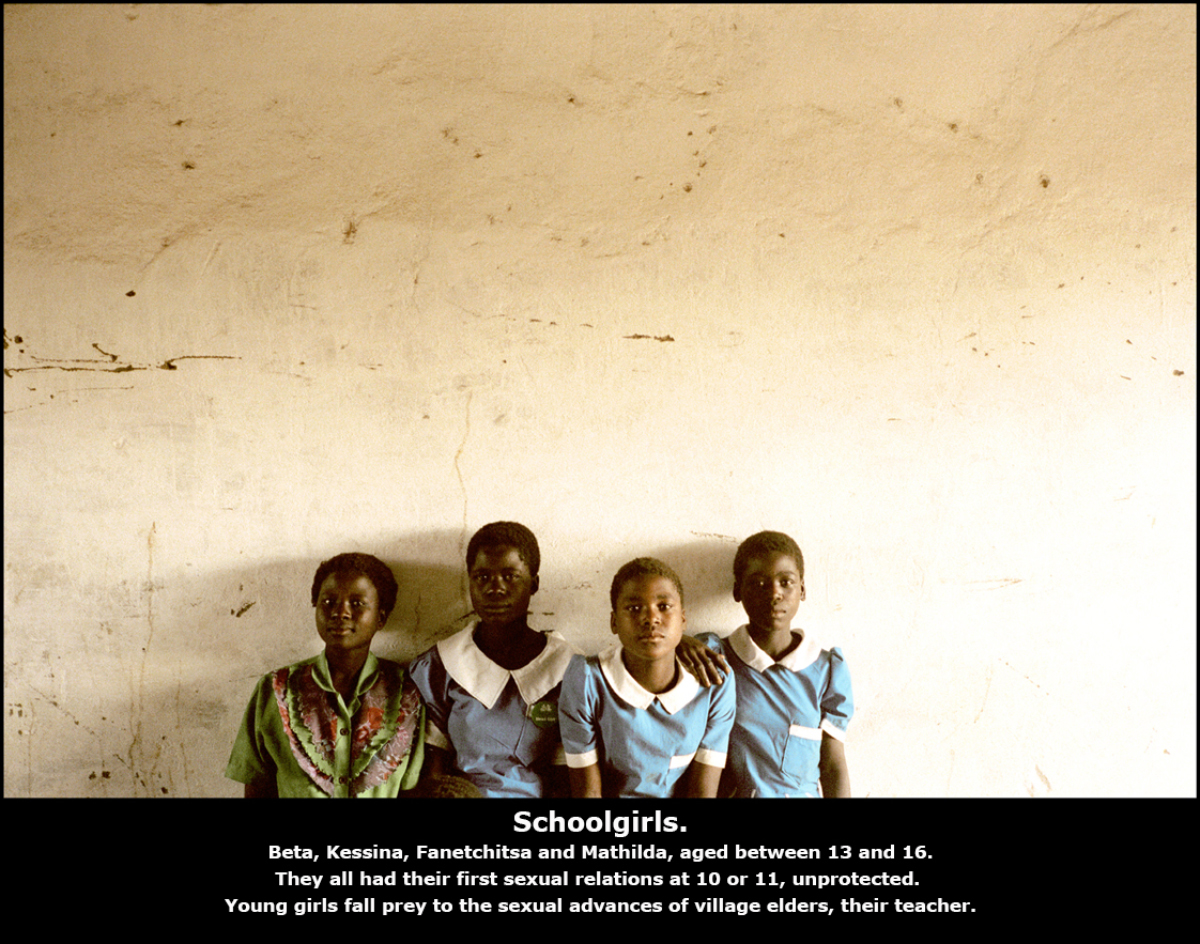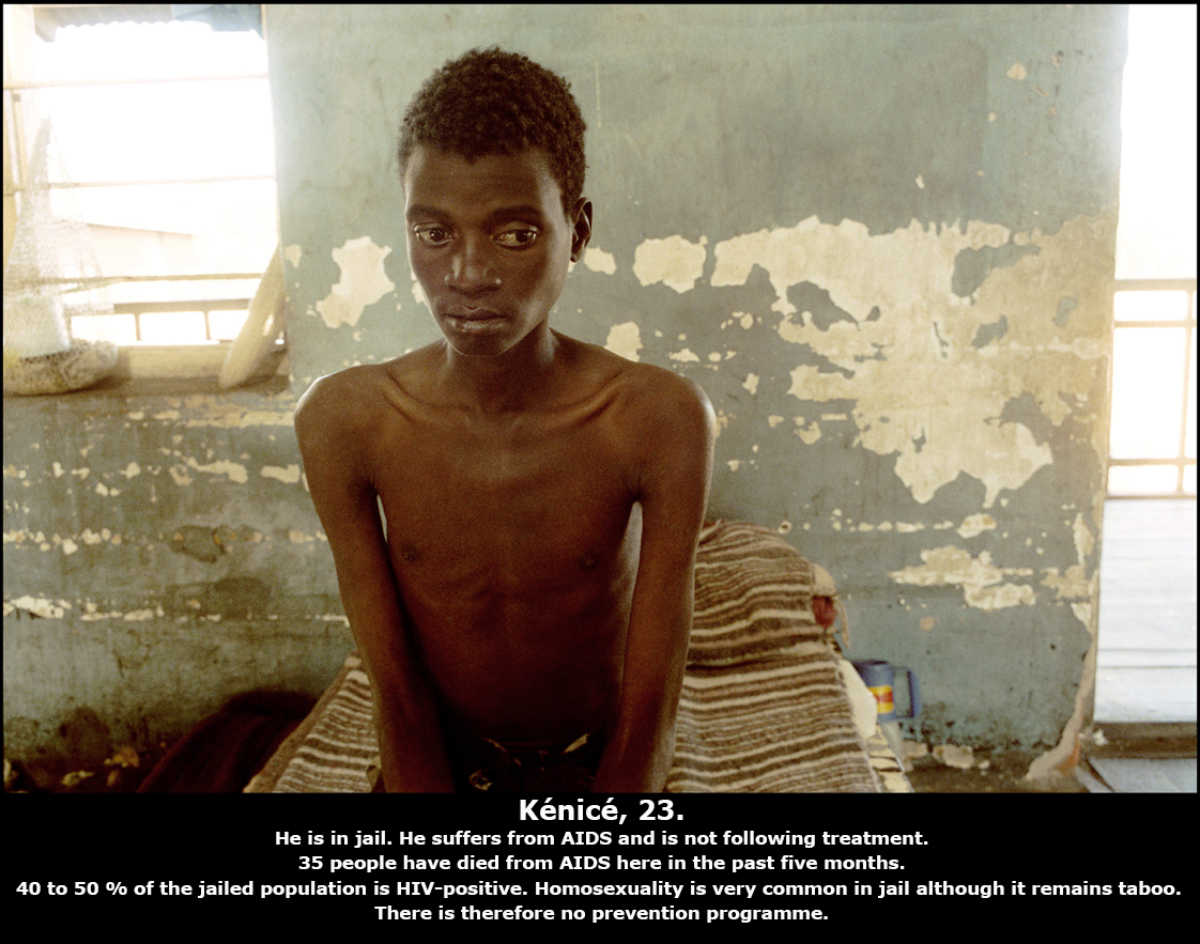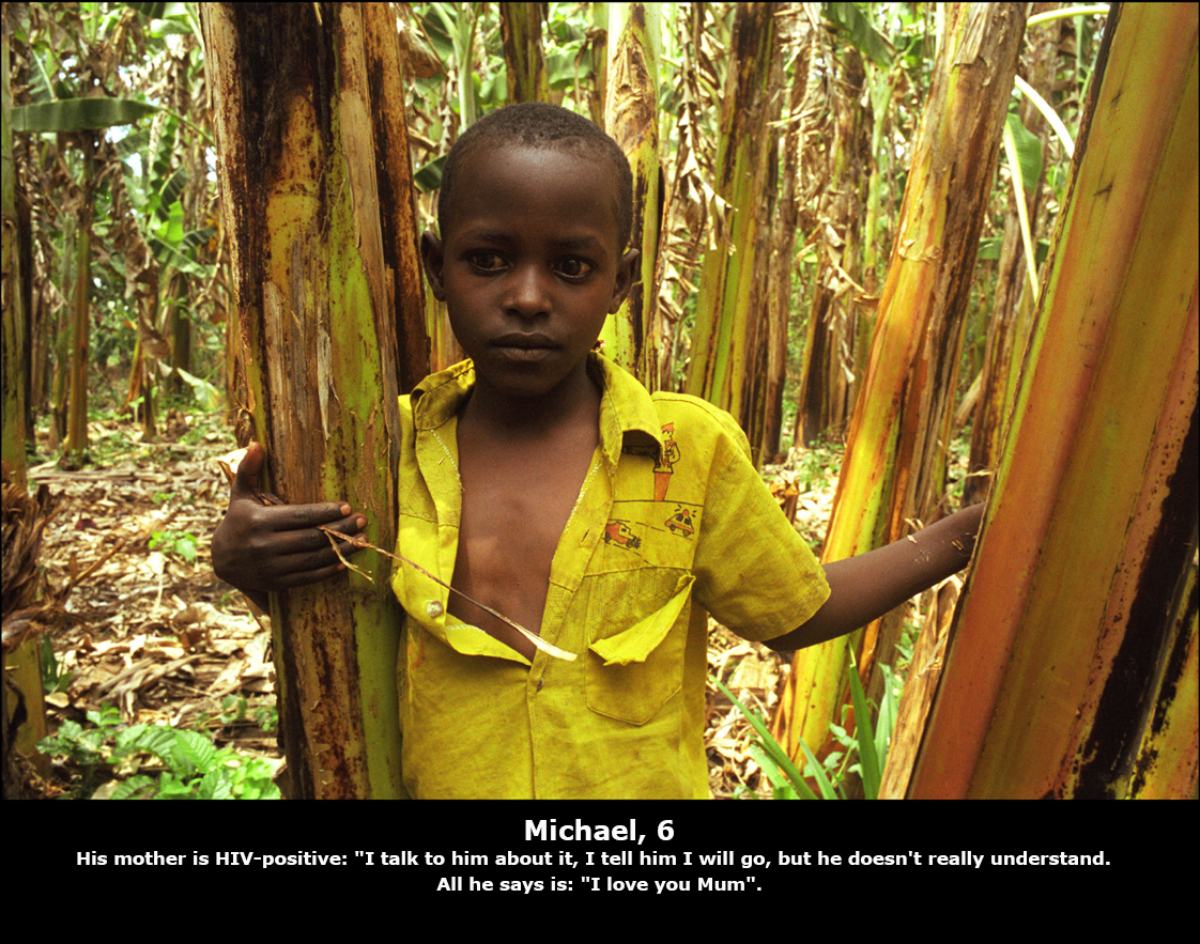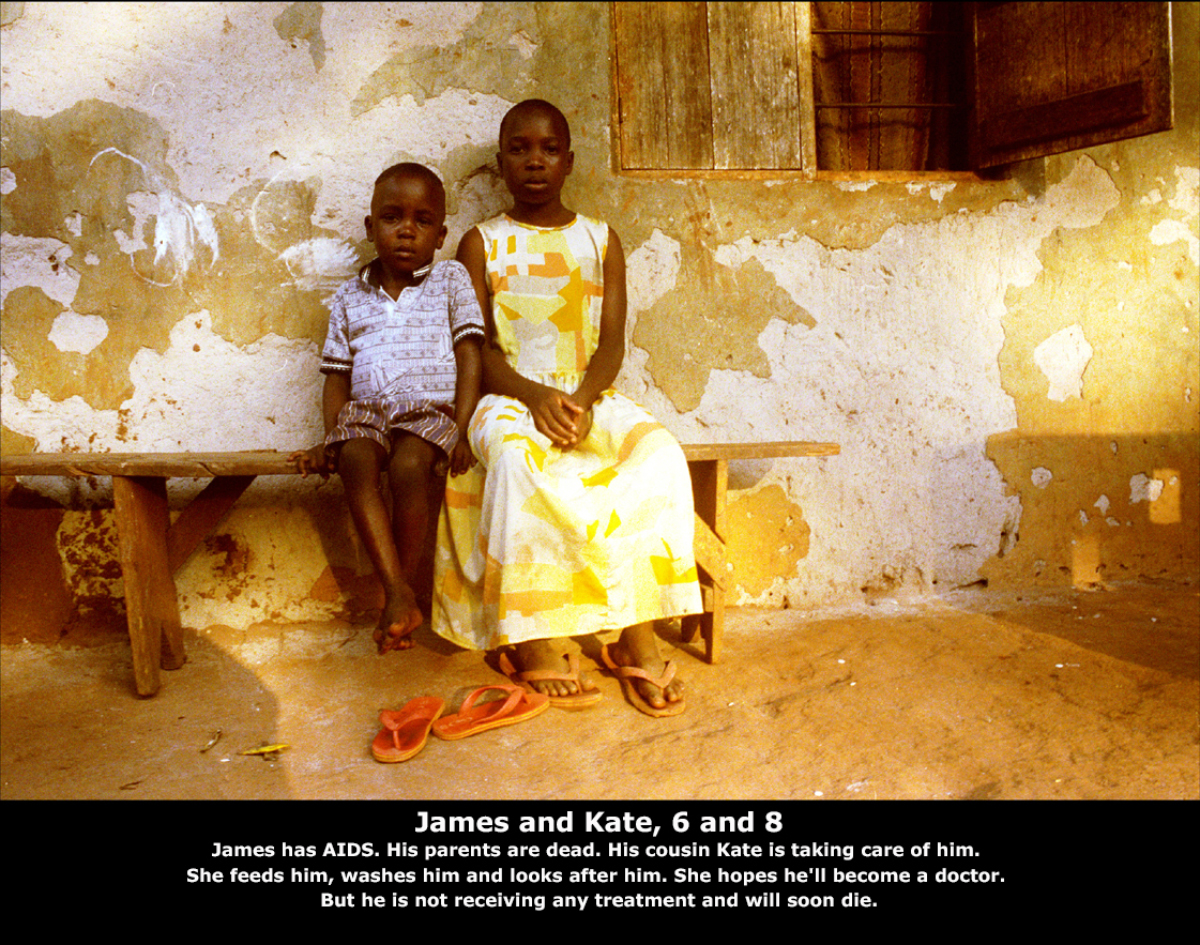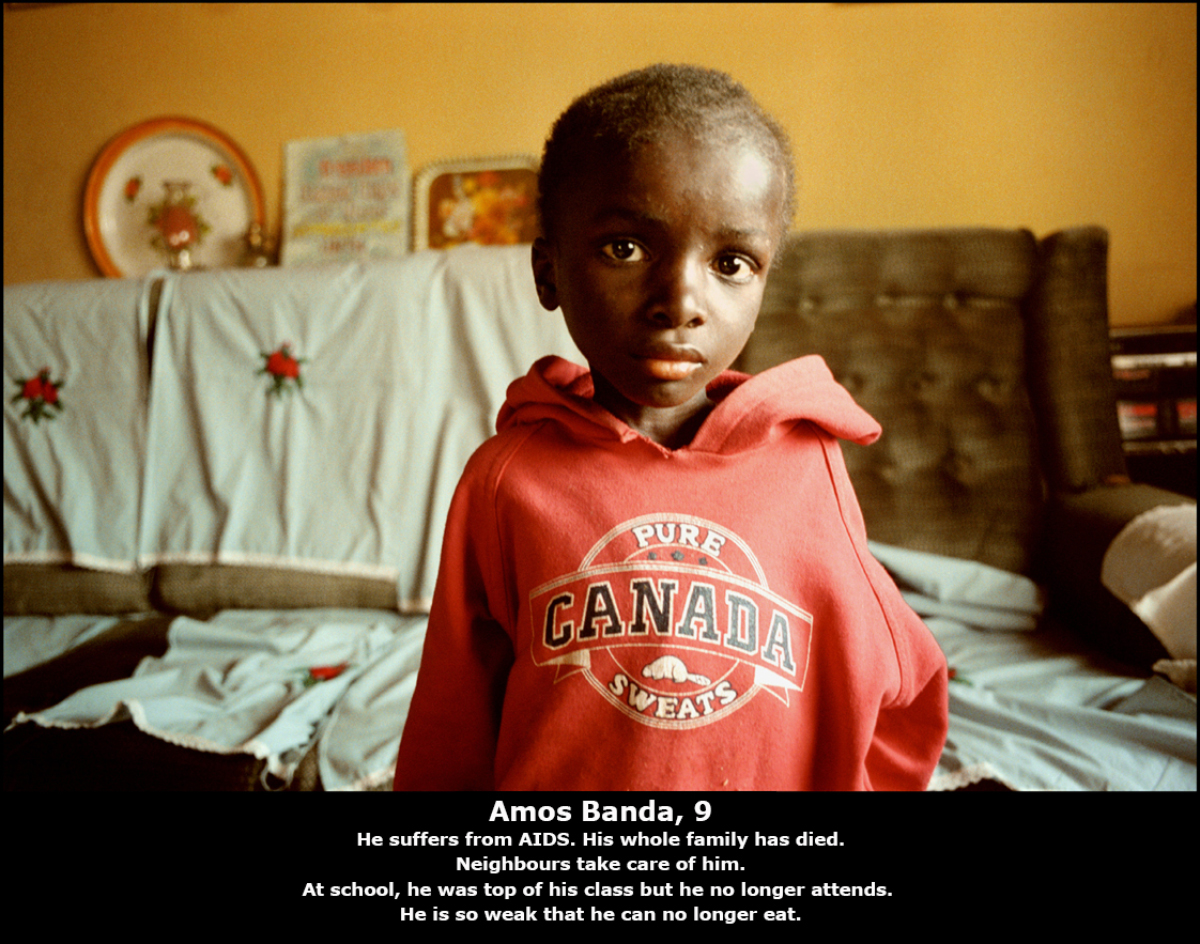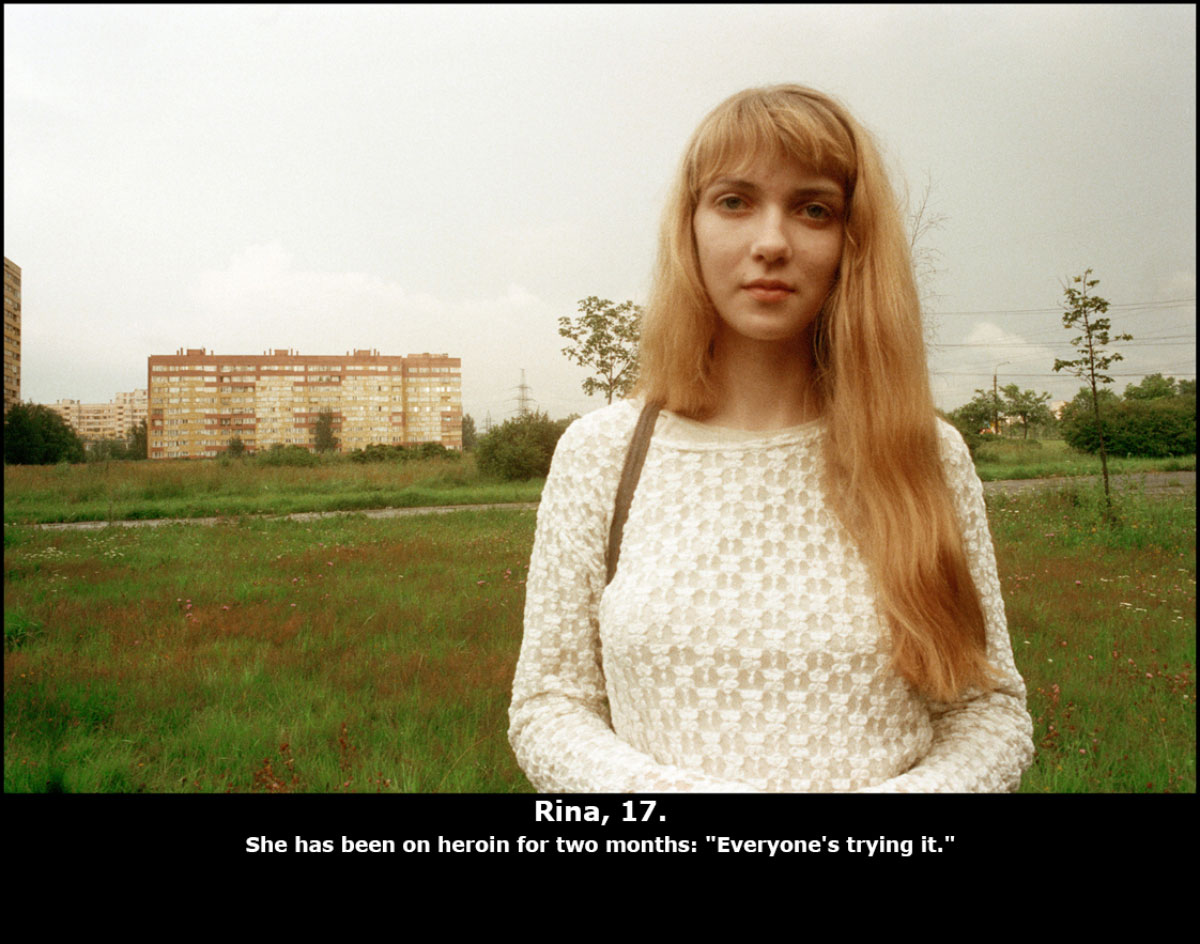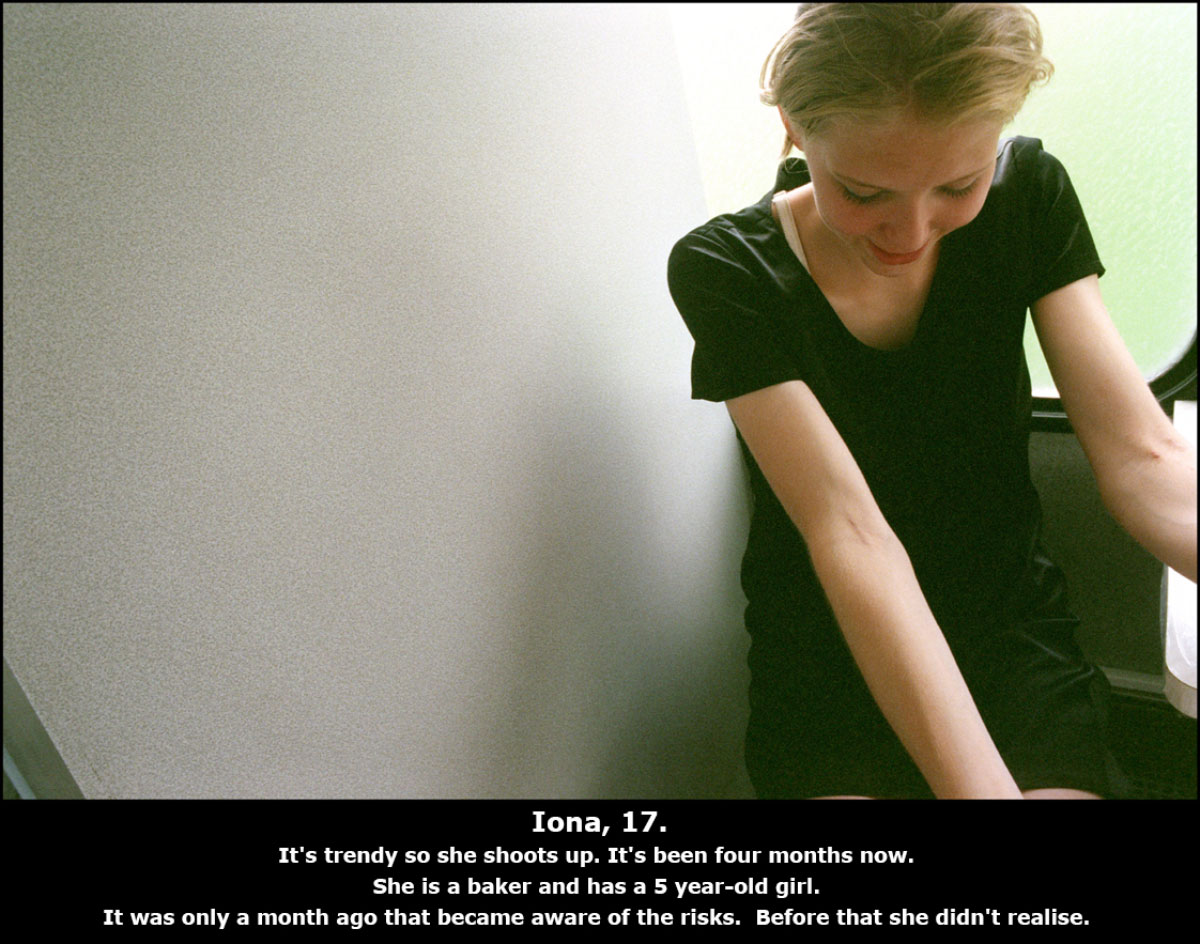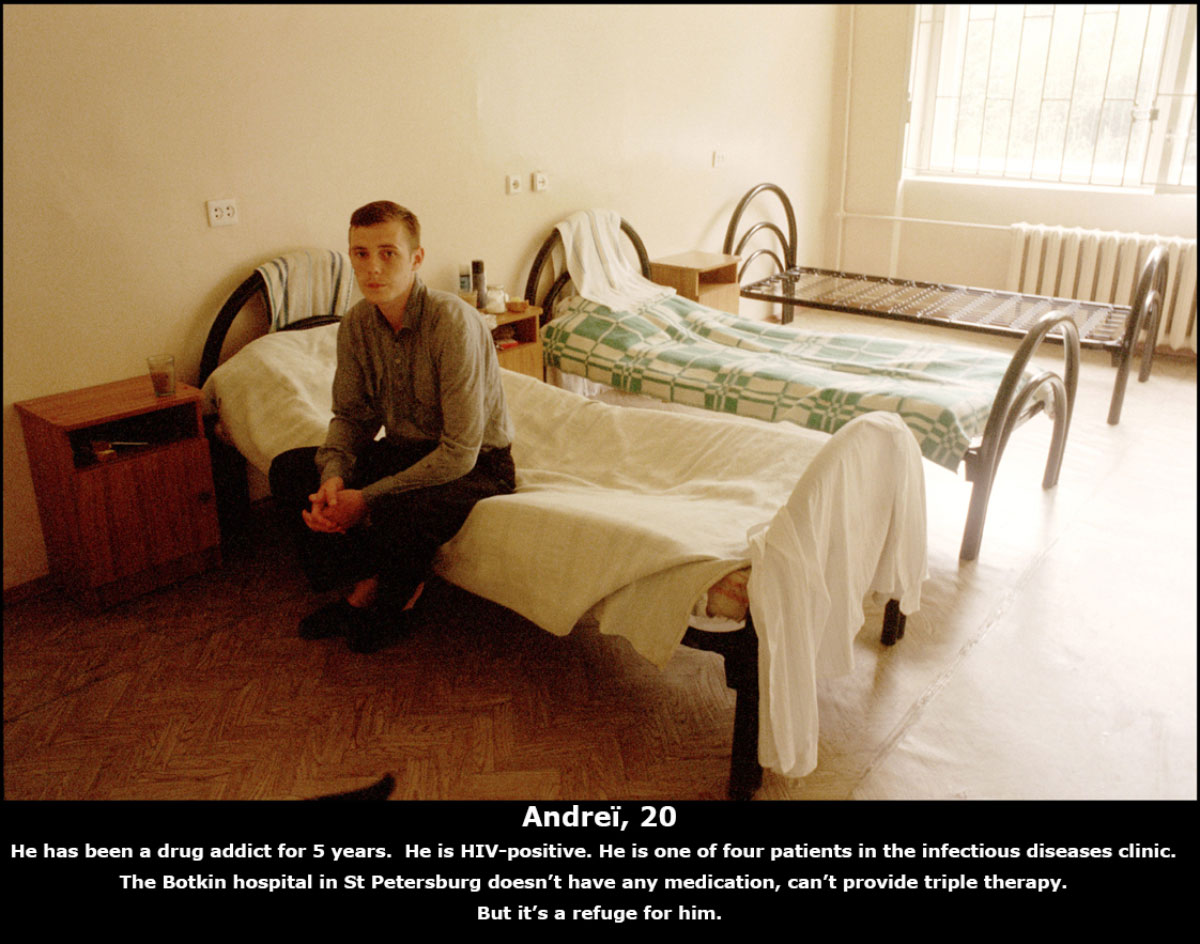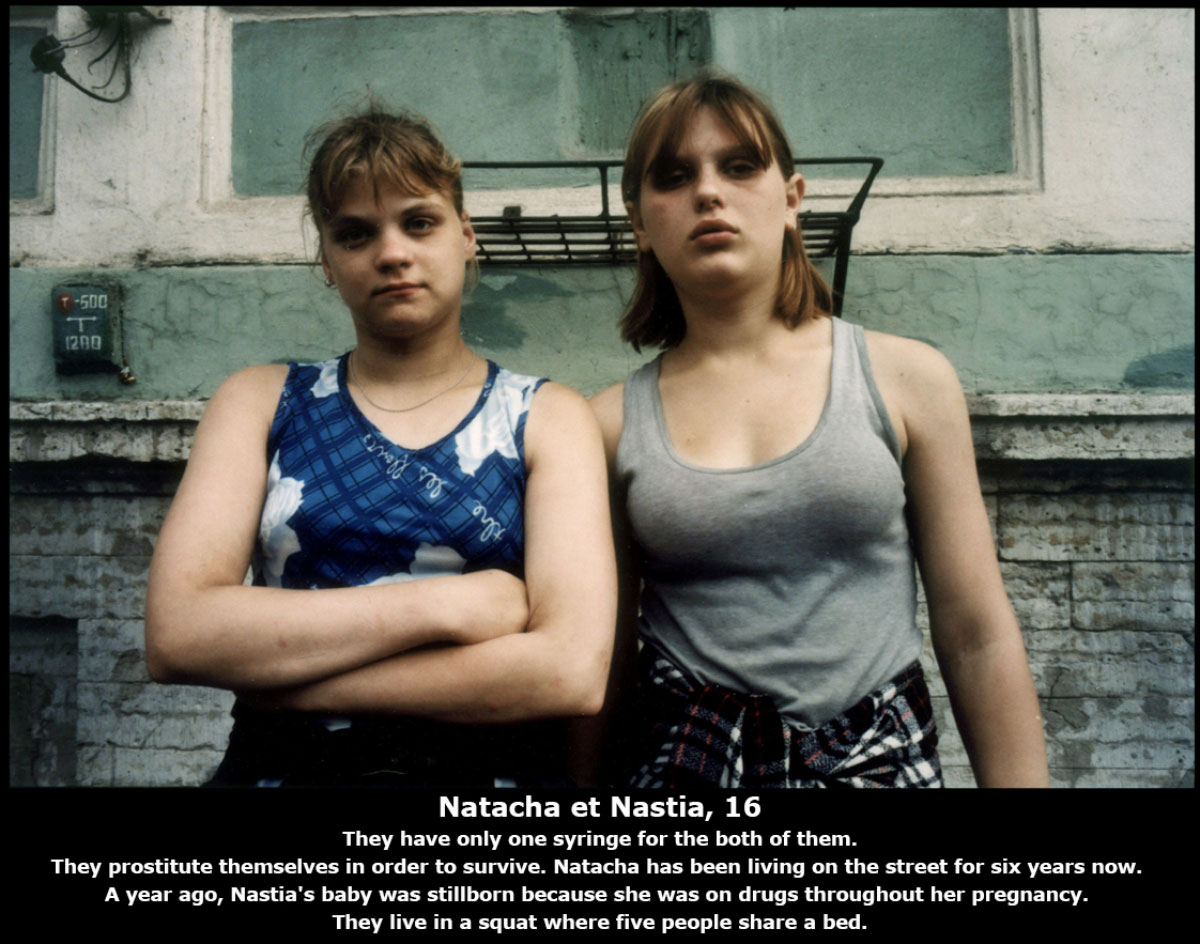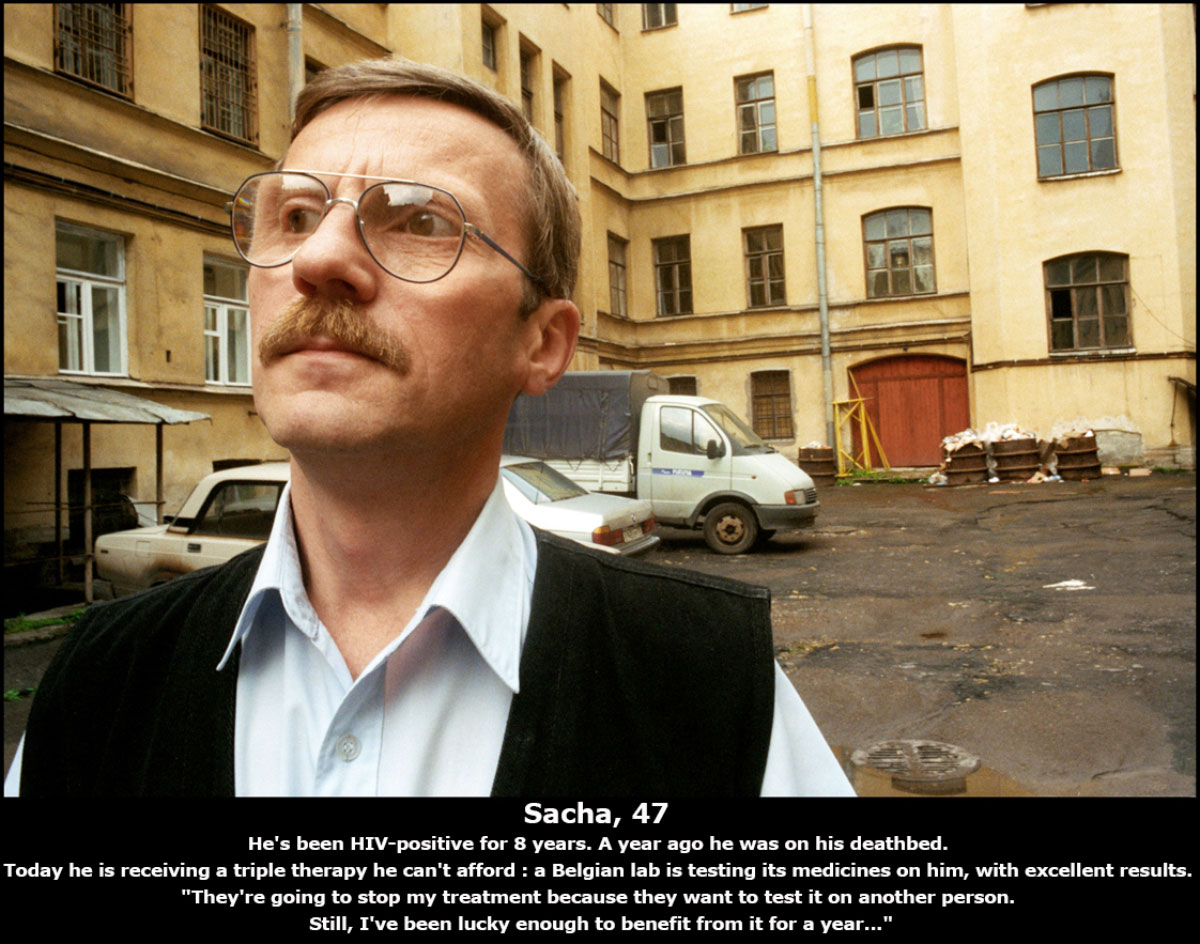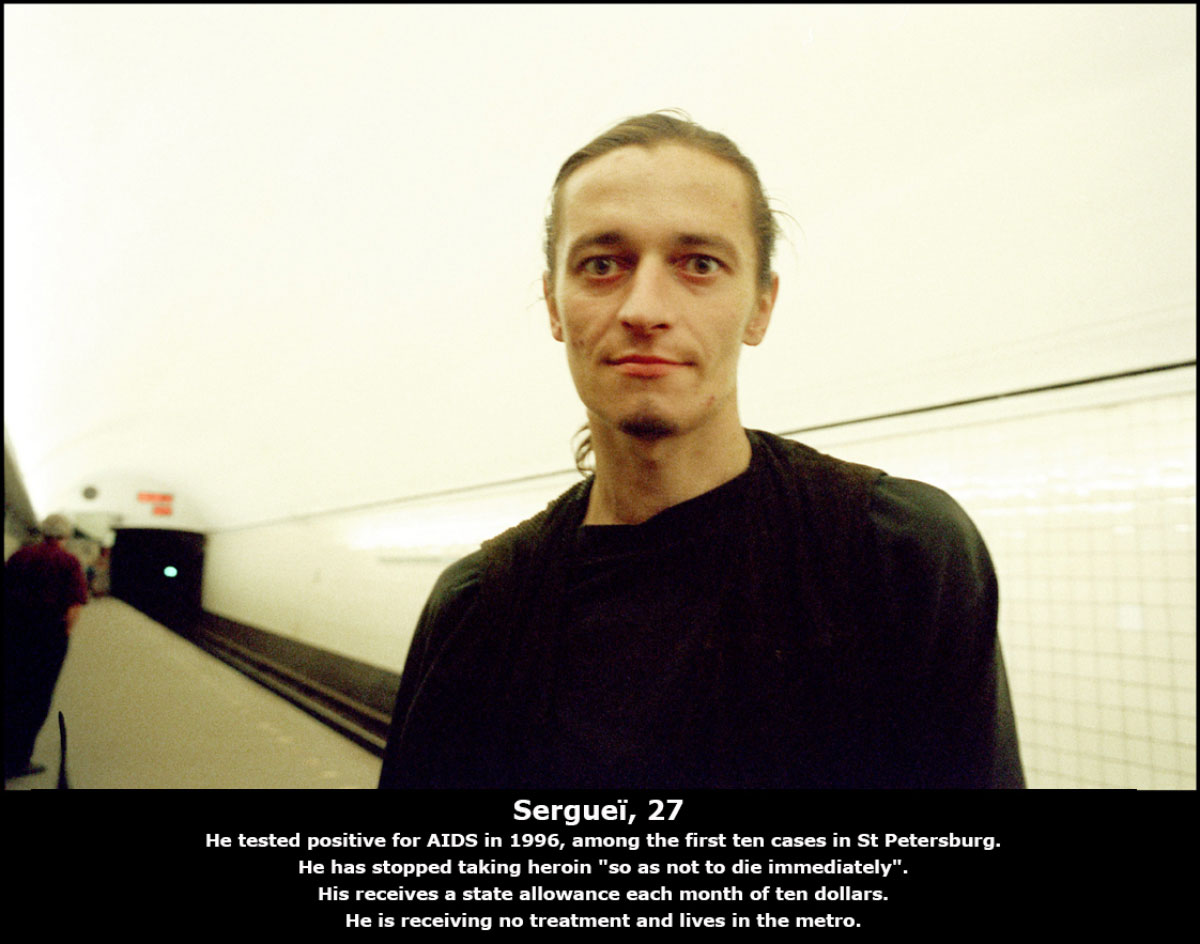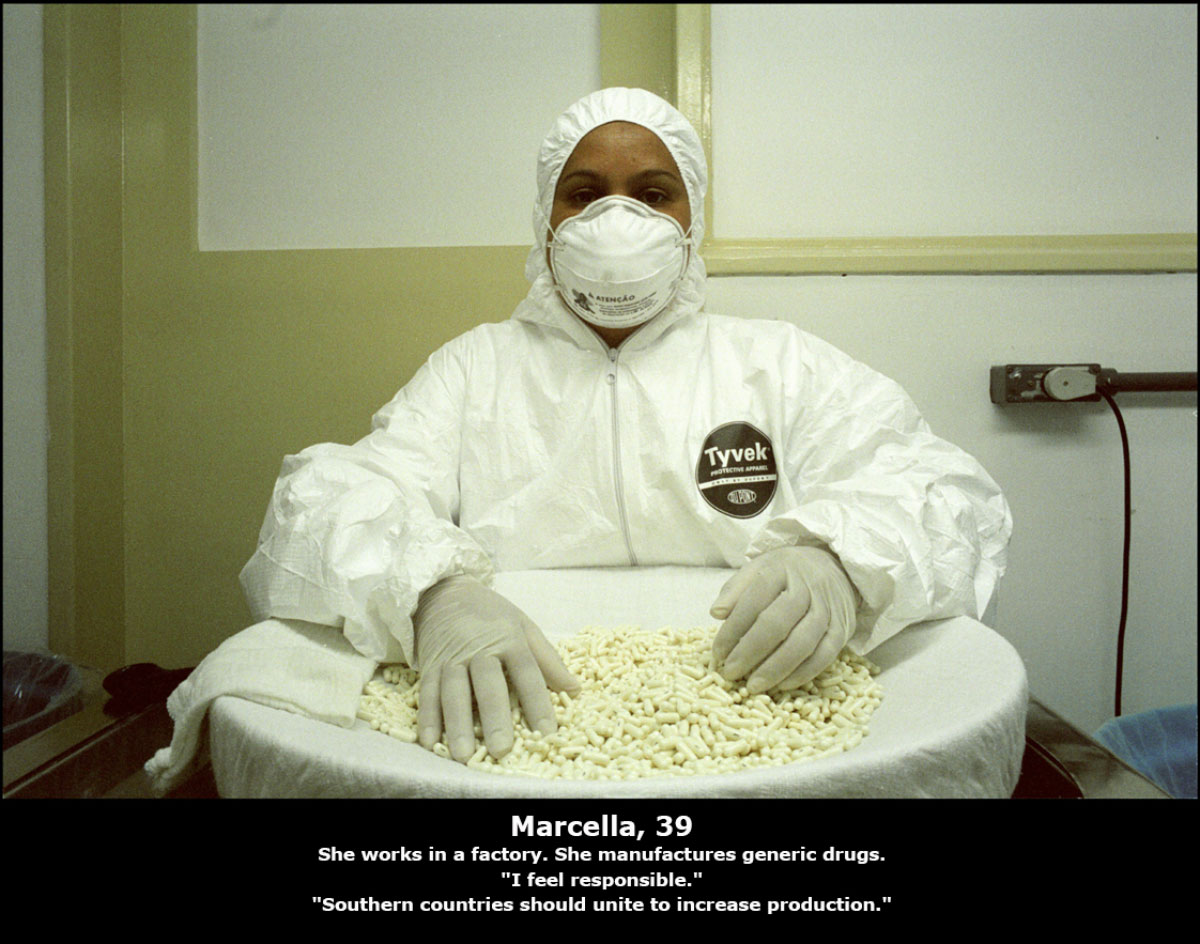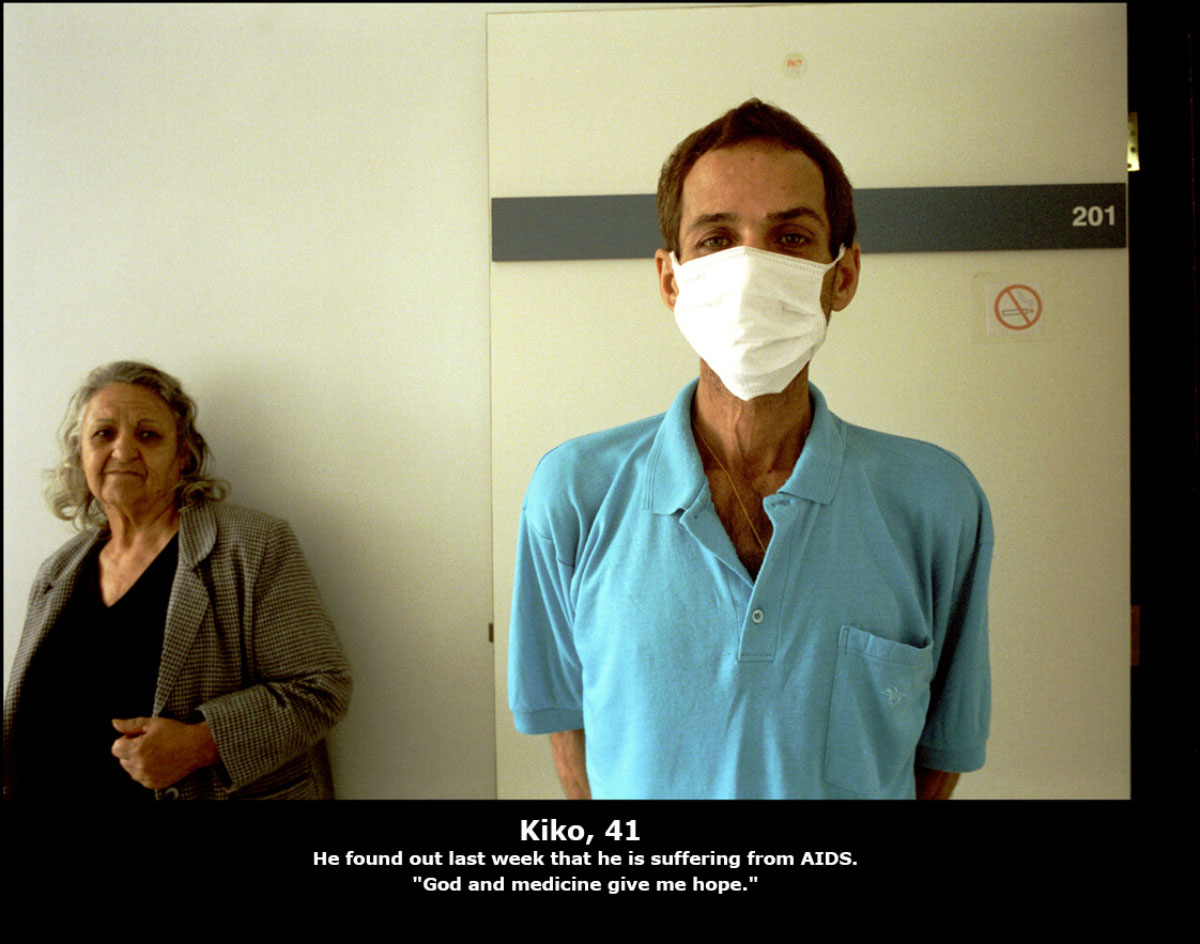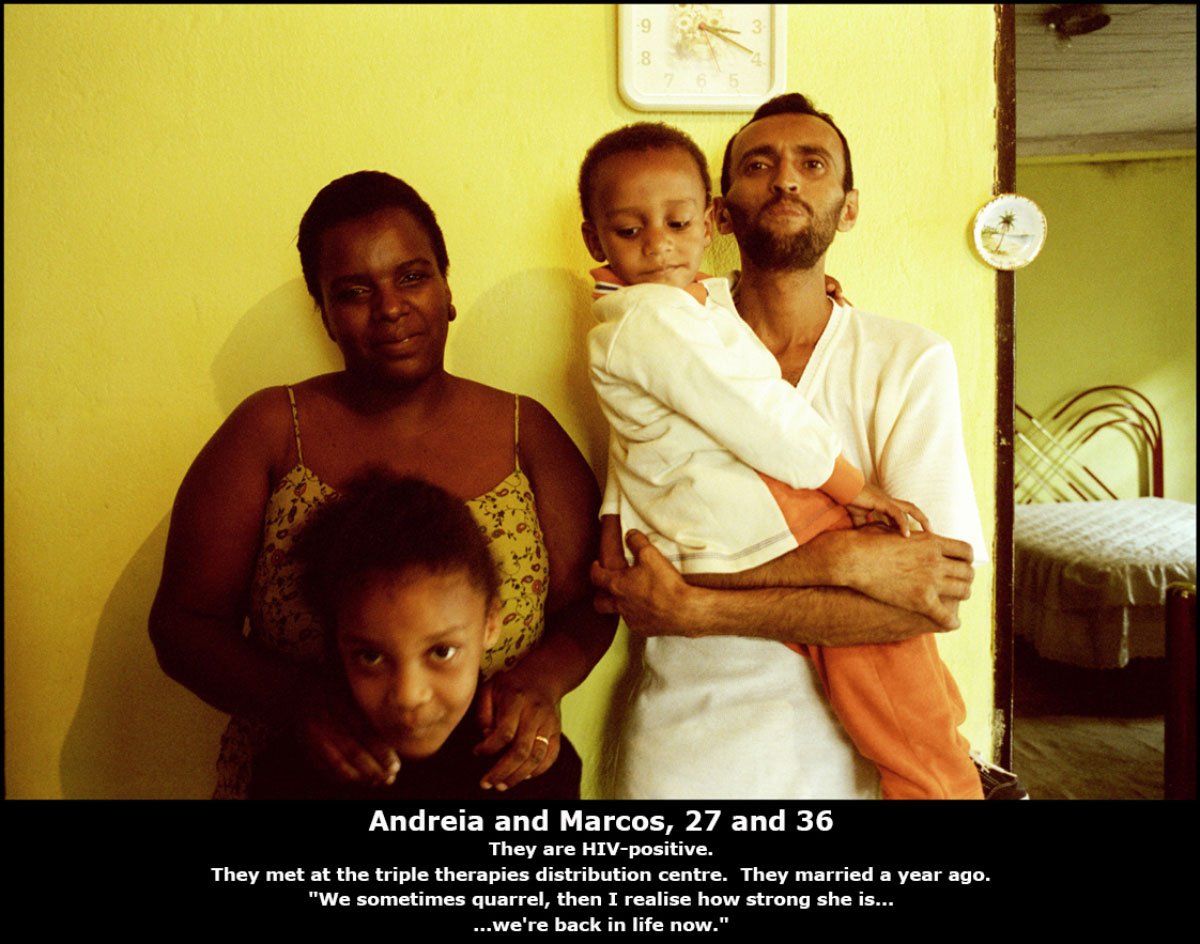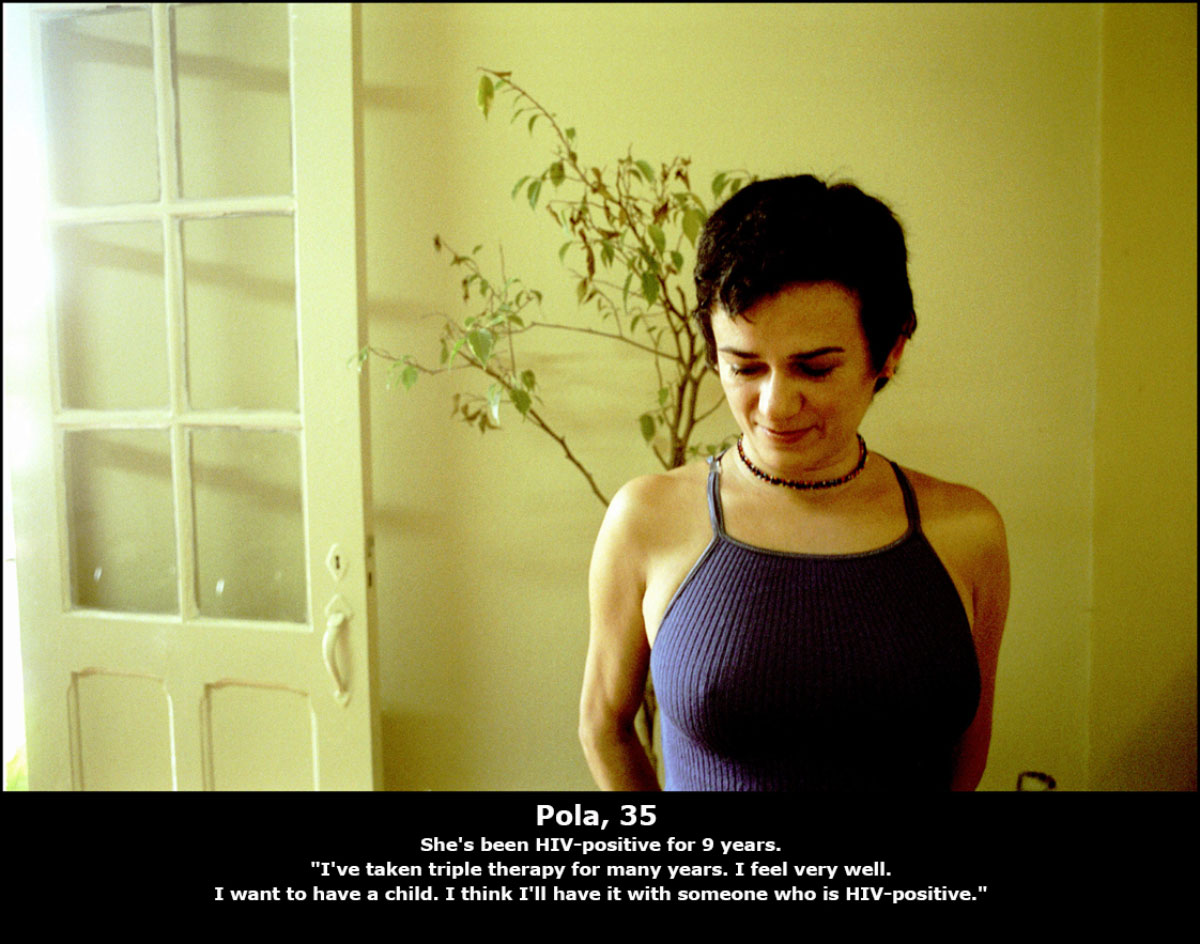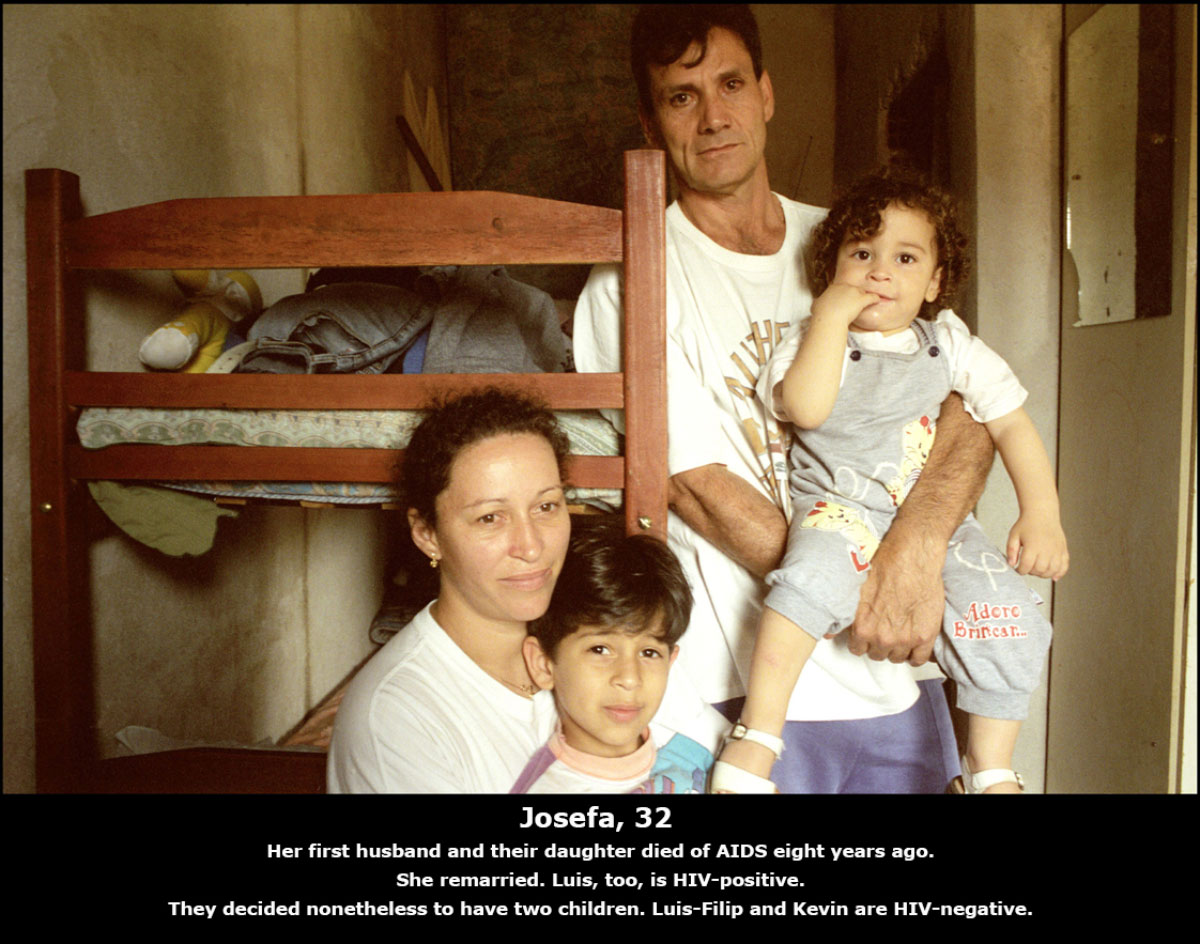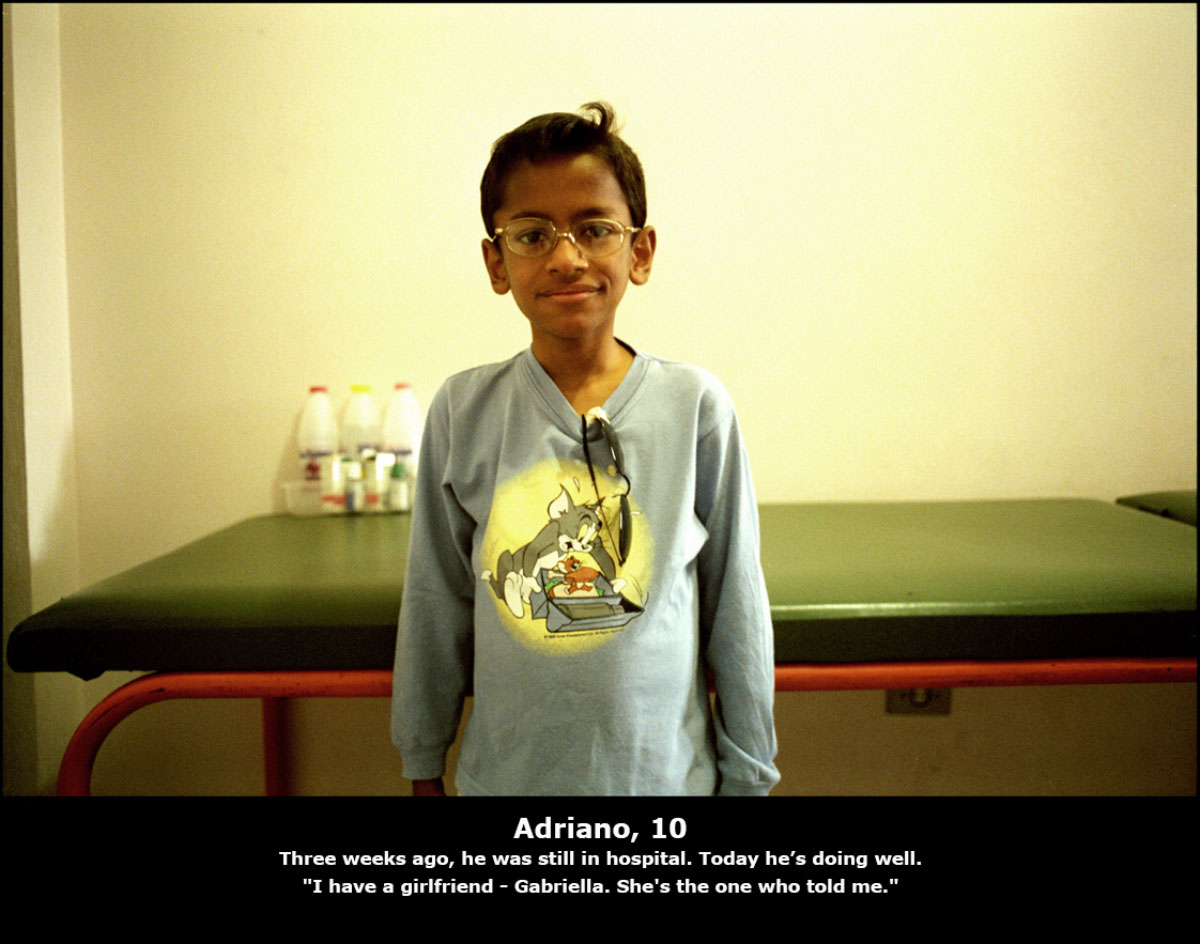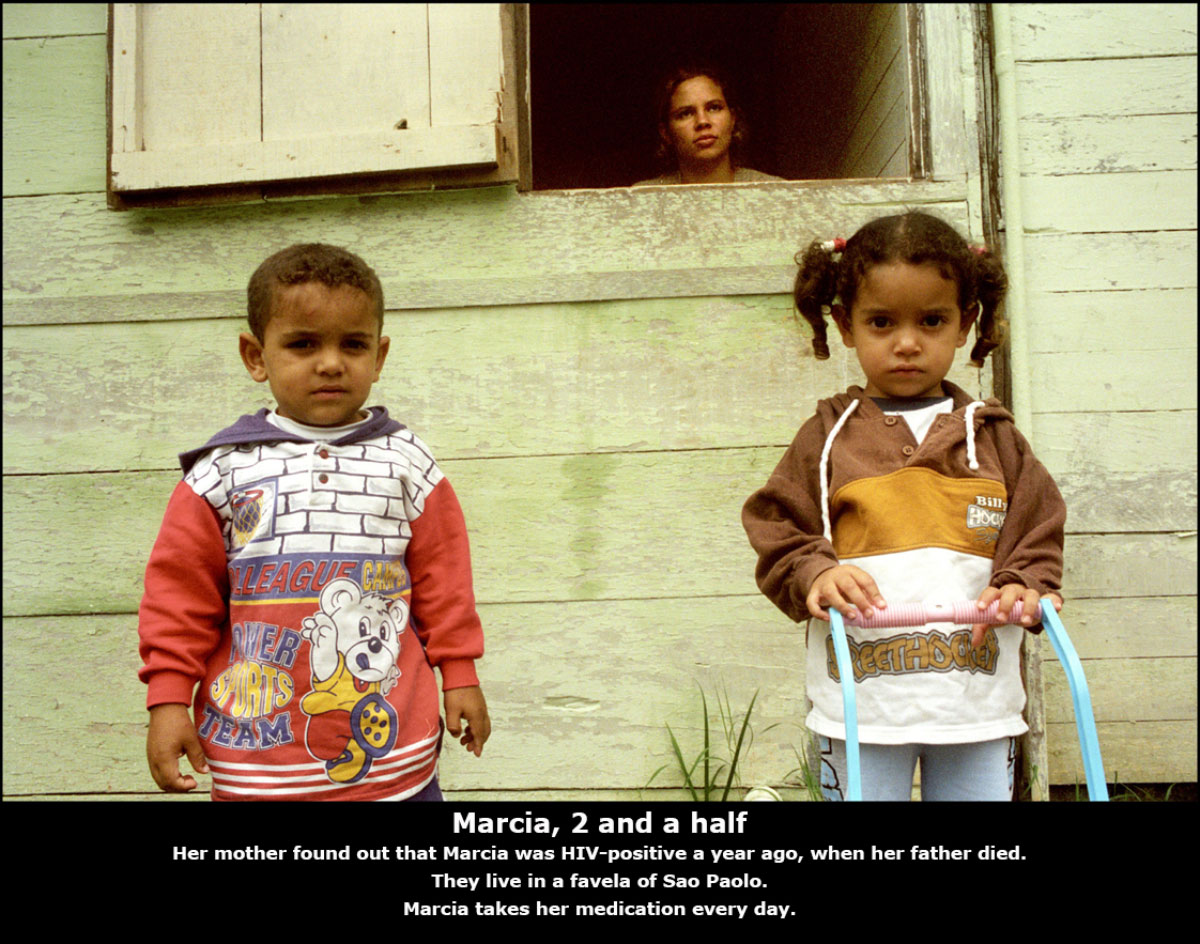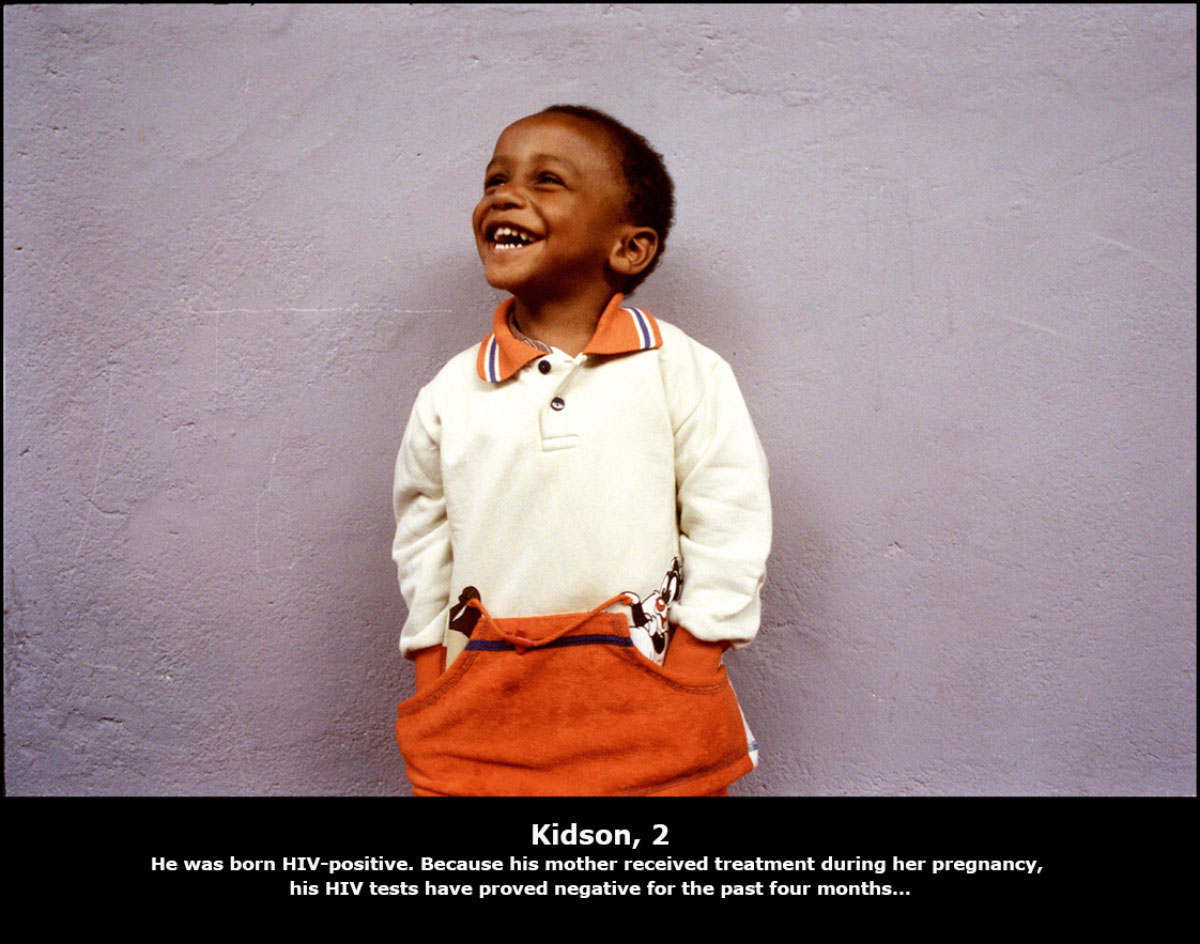AIDS Silence, 2001
The series « AIDS Silence » is dedicated to the problem of inequality in access to treatments and to the consequences of a fearsome scourge. While maintaining a connection with public health issues, Samuel Bollendorff proposes a personal photographic writing on the disease.
Going beyond the documentary tradition, the “AIDS Silence” series consists exclusively of individuals portraits of people gazing directly into the camera, paired with a few simple words about their condition as AIDS patients.
The texts talk about the horror and the injustice of their poor access to treatment, the images show the humanity and dignity of their gaze.
Malawi and Ouganda, a decimated generation, 2001
While the price of tri-therapies is falling and people in the North are beginning to stop dying of AIDS, Malawi (11 million inhabitants), in southern Tanzania, is one of the countries most affected by the scourge.
Prevention fails to pierce the veils of the sex taboo, and the disaster is decimating a generation. This generation, hits hard by the disease, leaves behind children, left to grandparents who have neither the strength nor the means to raise them.
There are already some 700,000 orphans in the country. The social consequences of the scourge are already being felt. In addition to the fact that children have no access to education, teachers are dying faster than they are trained.
A decimated generation leaves behind children with no framework, no family unit, no education, no future.
Russia, a sacrificed youth, 2000
Drug addiction in St Petersburg is exploding. The principles causes are the arrival of heroin from the southern countries of the former USSR and the increase of unemployment in the dormitory suburbs of St Petersburg.
The consumption and the consumers of heroin in St Petersburg can be compared to the young hashish consumers in France. Groups of youth who take drugs just because “it’s fun”, “it’s not expansive” and “everybody does it” …
The drug testing permit to establish a curve that is not ready to change as long as the government don’t make the change of mentality the priority.
The drug users don’t have access to medicine.
Brazil, generic for all, 2001
One of the most affected country in Latin America by the scourge with 60 000 cases of AIDS, Brazil decided to take the disease head-on.
In 1997, the number of deaths increase. Laboratories in possession of patents related to the disease are still not making accessible their treatments to all.
Therefore, Brazilian government influenced by local non-governmental organizations decided to restore social justice by ignoring the patent law. Then, the copy of medicine related to AIDS start. The social consequence is direct. AZT and tritherapy are available and distributed.
The most destitute people, even those who live in slums, have a free access to medicine. The number of deaths diminished by half in three years.
